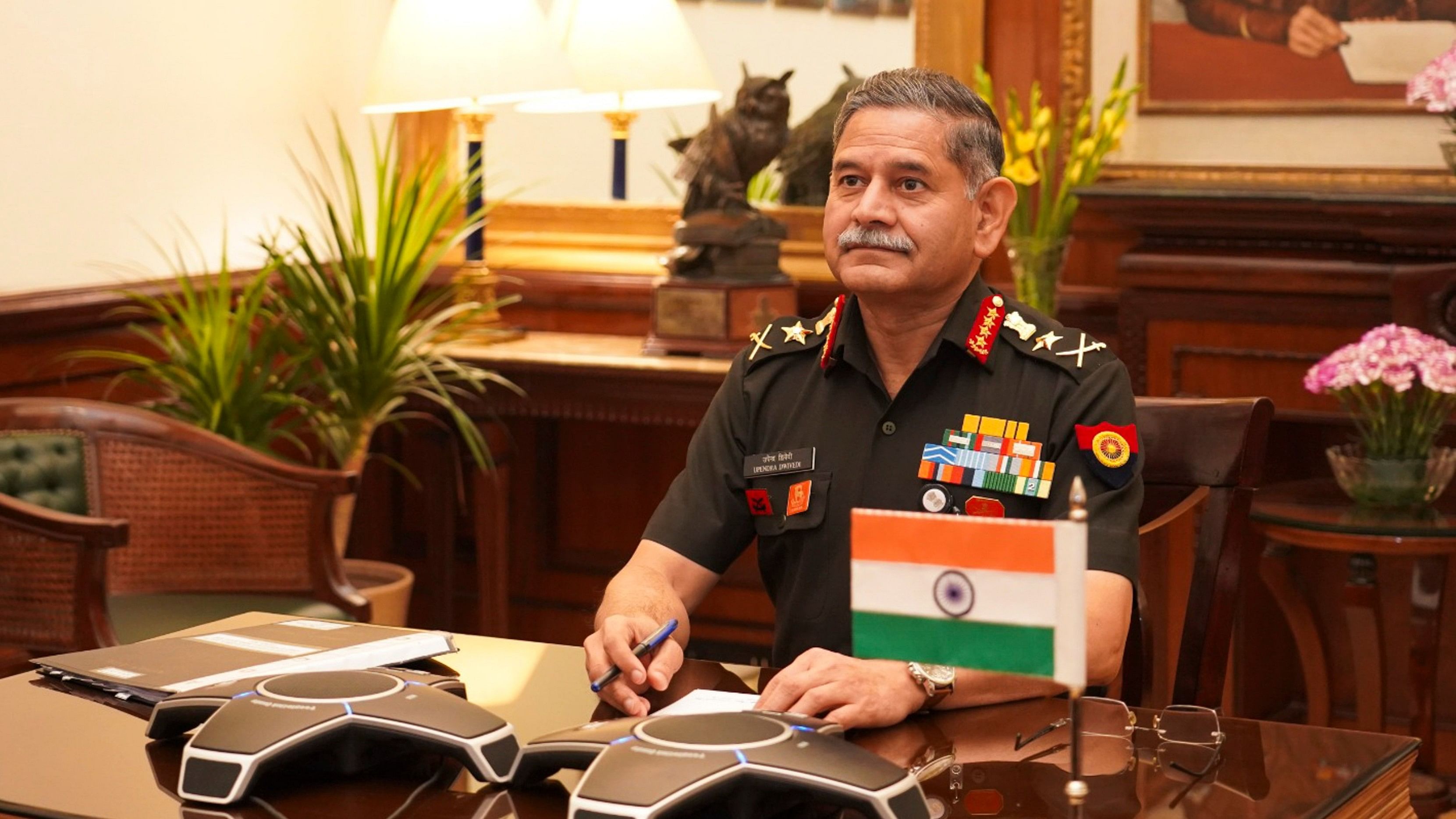
Army Chief General Upendra Dwivedi.
Credit: PTI Photo
New Delhi: Amidst the stalled recruitment of Nepali Gorkhas in the Indian Army, Chief of the Army Staff Gen Upendra Dwivedi is set to make his maiden trip to Nepal for four days to further strengthen the bilateral and regional cooperation between the two neighbours.
With China wooing the Himalayan state, Gen Dwivedi’s four-day visit starting on Nov 20 also provides an opportunity to discuss future supply of military hardware besides exploring the opportunities to improve disaster response mechanisms and expanding regional security cooperation.
Over the years India has supported Nepal in its military modernisation by supplying various forms of military hardware, including small arms, vehicles, and advanced training simulators.
General Dwivedi is set to hold extensive talks with his Nepalese counterpart, General Ashok Raj Sigdel, and likely to meet Prime Minister K P Sharma Oli and other key leaders in the Nepalese government.
With the Indian Army having 39 Gorkha battalions, where the majority number of soldiers used to come from Nepal, their absence from the recruitment process for the last four years might come up as a key issue during the talks, sources said.
Over 32,000 Gorkha soldiers from Nepal were part of the Indian Army, but they are absent from the process since the Covid-19 pandemic (when recruitment stopped) and subsequent introduction of the Agnipath scheme, which was opposed by the Nepali Gorkhas.
Nearly 60 per cent soldiers in each Gorkha battalion used to come from Nepal while the rest are from Indian hills. “Its an issue beyond the army and involves the Defence Ministry,” said an officer. Currently around 300 Nepali officers are being trained in the Indian Army.
Nepal is the only country whose soldiers are recruited in the Indian Army because of the cultural and traditional linkage between the two nations. Famous for their courage under fire, devotion to duty and loyalty, Gorkhas were employed by the East Indian Company in the army and the tradition continued.
“Over 88,000 army veterans reside in Nepal. The ex-servicemen are a unique and vital part of the bilateral relationship, contributing to both socio-economic development and cultural exchanges,” said a source.
As per the tradition, Gen Dwivedi will be conferred the honorary rank of "General of the Nepal Army" by Nepalese President Ramchandra Paudel in Kathmandu in continuation of a practice that first started in 1950, reflecting the strong ties between the two militaries.
The Army Chief is likely to visit the Muktinath temple in Mustang where a bell was installed last year in the name of former Chief of the Defence Staff Gen Bipin Rawat.
Nepal is important for India in the context of its overall strategic interests in the region, and leaders of the two countries have often noted the age-old "Roti-Beti" relationship.
Land-locked Nepal relies heavily on India for the transportation of goods and services. Nepal's access to the sea is through India and it imports a predominant proportion of its requirements from and through India.
